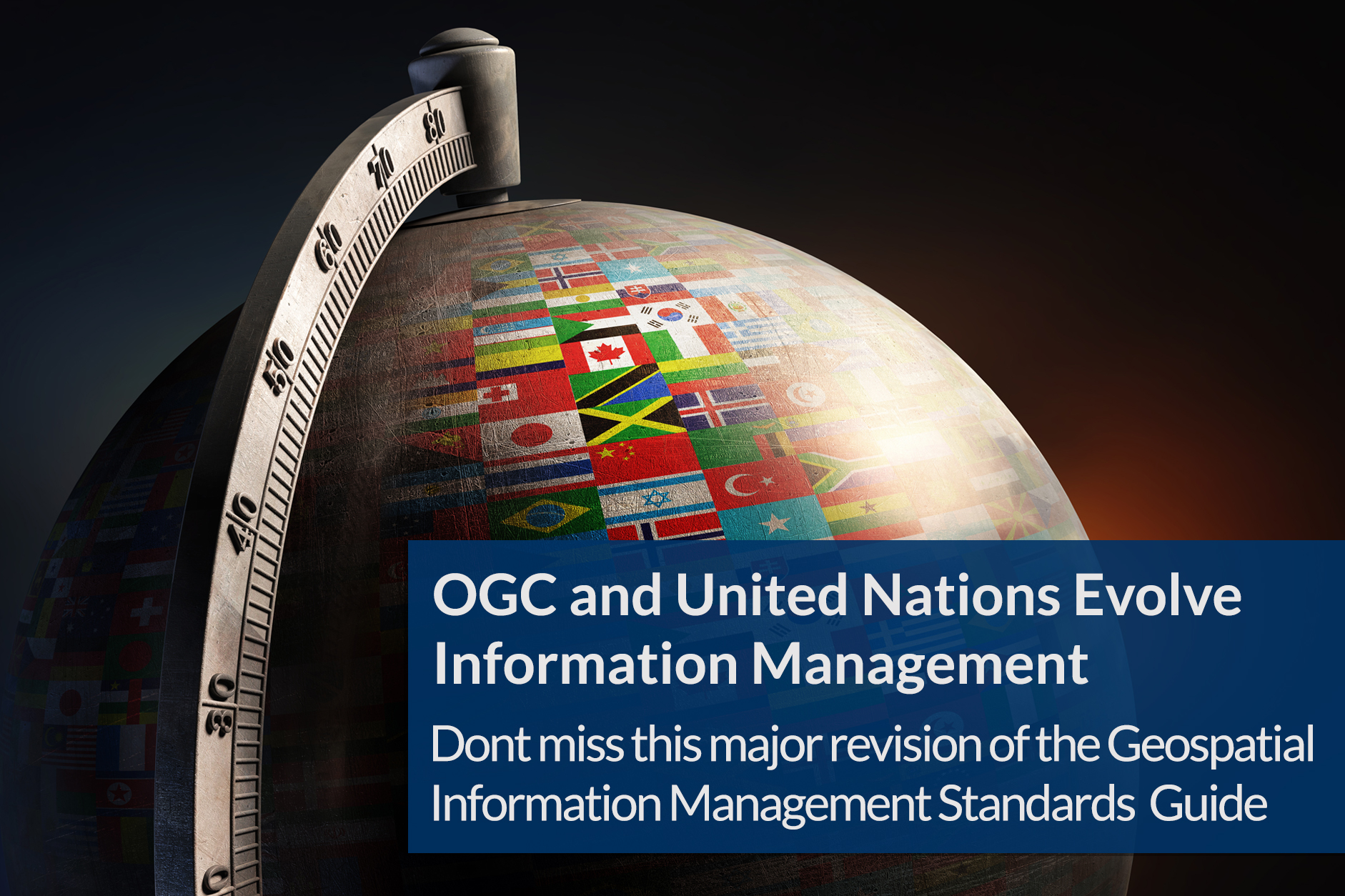This article is contributed by Mark Reichardt –
At the Eleventh Session of the United Nations Global Geospatial Information Management (UN-GGIM) Committee of Experts, member nations endorsed a key revision of the UN-GGIM Guide to the Role of Standards in Geospatial Information Management.
Happening in late August 2021, the goal of the Guide is to “provide detailed insights on the standards and good practices necessary to establish and maintain geospatial information management systems that are compatible and interoperable with other systems within and across organizations. The Guide also underscores the importance of standards in facilitating the application of the FAIR (Findable, Accessible, Interoperable, and Reusable) data principles – promoting improved policymaking, decision making and government effectiveness in addressing key social, economic, and environmental topics, including attainment of Sustainable Development Goals”.
This endorsement represents the culmination of the work of team of over 35 members and staff of the three Standards Development Organizations (SDOs): the Open Geospatial Consortium, the International Organization for Standardization (ISO) Technical Committee 211 on Geographic Information/Geomatics, (ISO/TC 211), and the International Hydrographic Organization (IHO). The team began its 6-month revision effort in January 2021.
This revision process to the UN-GGIM Guide to the Role of Standards in Geospatial Information Management has several key goals:
- Update the guide to represent recent advancements in geospatial standards, reinforcing learning resources and community implementation examples
- Align the Guide with the UN-GGIM Integrated Information Framework (IGIF) – the overarching strategy and guide for implementing geospatial information management in nations worldwide, and
- Transition the Guide from a traditional static publication to an easy to maintain web presence, while providing the ability for users to create a static, printed version of the document for offline use.
Committee of Experts representatives from member nations and observer organizations committed to review and comment on the revised Guide, to include identification of additional resources and community implementation examples to help implementers better understand the context and value of standards as an underpinning component of geospatial information management programs. Such resources will further help implementing organizations to establish solutions that “interoperate” to support geospatial data sharing, maintenance and decision-making across organizations, jurisdictions and systems. The SDO Guide team expects to have the Guide available as an on-line resource by January of 2022.
OGC, ISO/TC 211 and IHO member representatives and staff have dedicated their time and energy to this effort, and OGC is proud of this long standing collaboration and our commitment to supporting UN-GGIM to enable FAIR geospatial information management worldwide.
